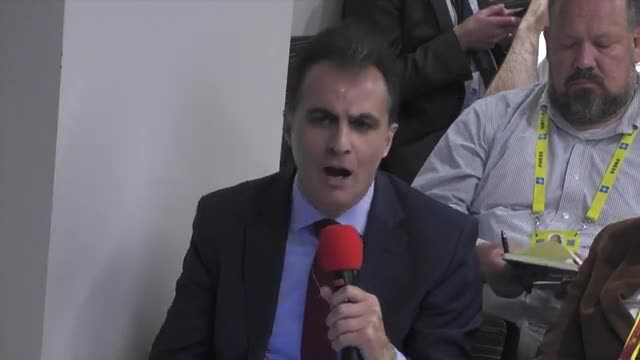NATO Summit Faces Pressure Amid Ongoing Ukraine Crisis
July 08, 2024 | US Department of State

This article was created by AI summarizing key points discussed. AI makes mistakes, so for full details and context, please refer to the video of the full meeting. Please report any errors so we can fix them. Report an error »

In a recent government meeting, discussions centered on the ongoing conflict in Ukraine, NATO's evolving role, and the implications of international diplomatic actions. A significant point raised was the attack on a children's hospital, described as \"horrific\" and \"tragic,\" highlighting the need for thorough investigations into potential war crimes. The speaker emphasized that such actions must be scrutinized as part of the broader context of the war.
The meeting also addressed Hungary's Prime Minister Viktor Orbán's visit to Moscow, which was characterized as unconstructive and detrimental to the peace process in Ukraine. The speaker reiterated that this visit does not aid Ukraine's situation, reflecting a consensus among European allies who labeled it as appeasement.
As NATO prepares for an upcoming summit, the integration of Finland and Sweden into the alliance was discussed. Their membership is seen as a strategic enhancement, particularly for the defense of the Baltic region. The speaker noted that these countries bring valuable capabilities and will be fully integrated into NATO's operations.
Concerns were raised about Ukraine's current precarious position in the conflict, with some questioning whether NATO's upcoming summit would yield significant advancements in support for Ukraine. In response, the speaker highlighted recent substantial military and financial support provided to Ukraine, including a $61 billion surge in assistance and ongoing training programs. This support aims to bolster Ukraine's defenses and prepare it for potential future NATO membership.
The meeting concluded with discussions on the Ukraine Defense Contact Group, which will continue to operate alongside NATO, ensuring ongoing support for Ukraine from over 50 countries. The speaker reaffirmed the long-term commitment of the United States to Ukraine's defense capabilities through a recently signed 10-year bilateral security agreement, emphasizing that this is a strategic move to deter further aggression from Russia.
Overall, the meeting underscored the complexities of international relations amid the ongoing conflict in Ukraine, highlighting NATO's adaptive strategies and the importance of continued support for Ukraine's sovereignty.
The meeting also addressed Hungary's Prime Minister Viktor Orbán's visit to Moscow, which was characterized as unconstructive and detrimental to the peace process in Ukraine. The speaker reiterated that this visit does not aid Ukraine's situation, reflecting a consensus among European allies who labeled it as appeasement.
As NATO prepares for an upcoming summit, the integration of Finland and Sweden into the alliance was discussed. Their membership is seen as a strategic enhancement, particularly for the defense of the Baltic region. The speaker noted that these countries bring valuable capabilities and will be fully integrated into NATO's operations.
Concerns were raised about Ukraine's current precarious position in the conflict, with some questioning whether NATO's upcoming summit would yield significant advancements in support for Ukraine. In response, the speaker highlighted recent substantial military and financial support provided to Ukraine, including a $61 billion surge in assistance and ongoing training programs. This support aims to bolster Ukraine's defenses and prepare it for potential future NATO membership.
The meeting concluded with discussions on the Ukraine Defense Contact Group, which will continue to operate alongside NATO, ensuring ongoing support for Ukraine from over 50 countries. The speaker reaffirmed the long-term commitment of the United States to Ukraine's defense capabilities through a recently signed 10-year bilateral security agreement, emphasizing that this is a strategic move to deter further aggression from Russia.
Overall, the meeting underscored the complexities of international relations amid the ongoing conflict in Ukraine, highlighting NATO's adaptive strategies and the importance of continued support for Ukraine's sovereignty.
View full meeting
This article is based on a recent meeting—watch the full video and explore the complete transcript for deeper insights into the discussion.
View full meeting